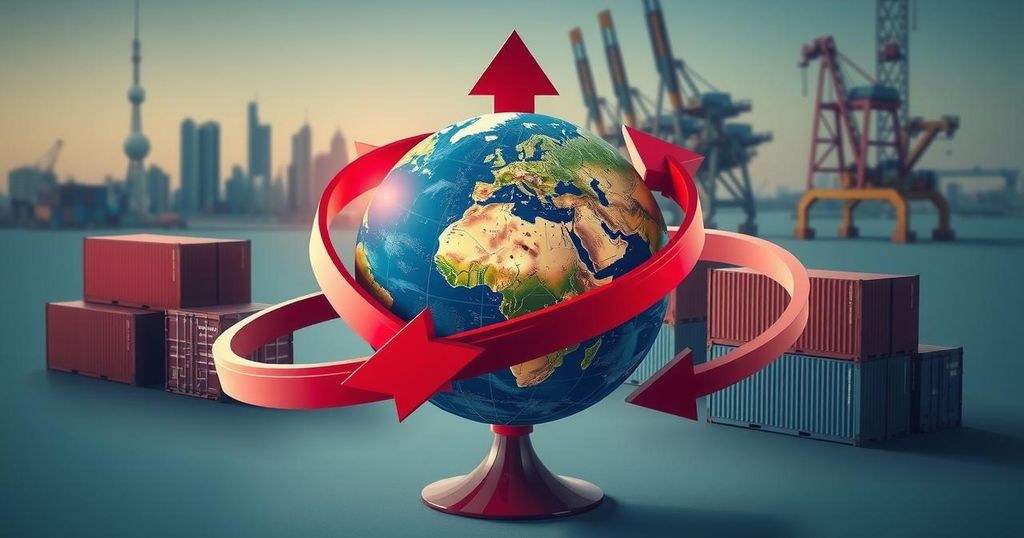Donald Trump has imposed new tariffs on imports from Canada, Mexico, and China, which include Canadian timber and various Chinese products. These tariffs have already affected stock markets and strained relations with trading partners. Despite expectations of increased consumer prices, negotiations regarding drug trafficking have yielded some agreements with Canada and Mexico. The situation remains volatile, demonstrating the complexities of international trade dynamics and U.S. economic policy.
President Donald Trump has instituted new tariffs on goods imported from Canada, Mexico, and China, which include Canadian timber, oil, and various Chinese products such as computer chips and textiles. These tariffs were part of Trump’s campaign promises and have significantly impacted stock markets and supply chains, simultaneously straining diplomatic relations with these nations. Notably, both Canada and Mexico have agreed to enhance their border security measures in response to Trump’s demands, agreeing to take specific actions against drug trafficking.
The imposition of tariffs has reignited discussions surrounding U.S. trade practices and prompted responses from key trading partners. The United States’ reliance on imports from Canada and Mexico is substantial, particularly regarding energy supplies. Trump’s tactics appear centered on leveraging trade negotiations for political objectives, notably concerning immigration and drug control. The initial tariffs are expected to lead to increased consumer prices and supply disruptions, particularly in sectors reliant on imported goods.
In conclusion, President Trump’s introduction of tariffs is set against a backdrop of longstanding criticisms about U.S. trade imbalances, with initial successes framed around border security agreements. However, the resulting economic repercussions may lead to rising consumer prices and disruptions in already fragile supply chains. The responses from Canada, Mexico, and China illustrate the balance of international trade dynamics at play, suggesting a looming impact on global markets and domestic consumers.
Original Source: www.hindustantimes.com




